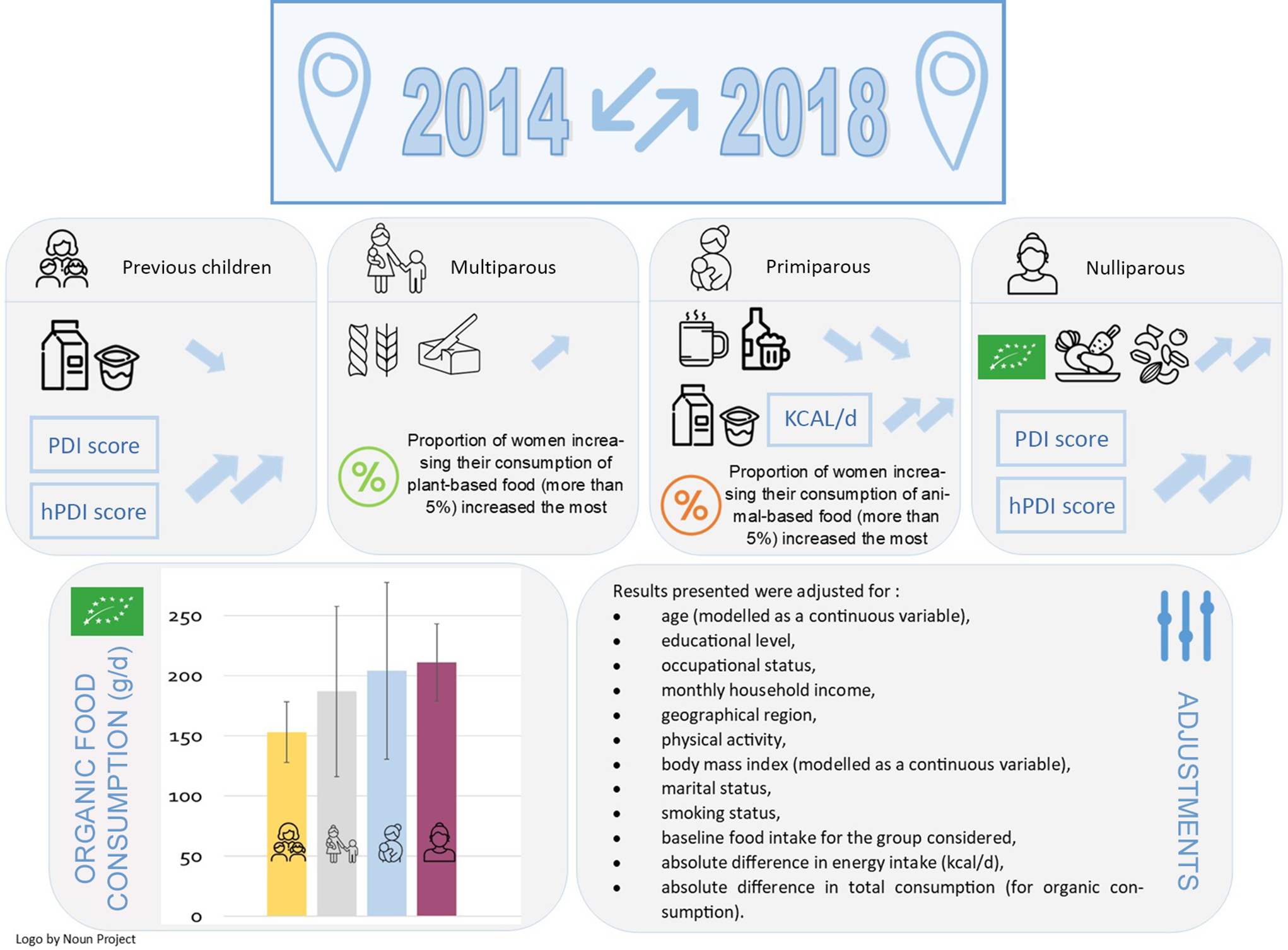No CrossRef data available.
Published online by Cambridge University Press: 18 October 2024

Childbirth is a major life-changing event, this period is an opportunity to improve eating habits. The aim of this longitudinal study was to identify and characterise dietary changes in women according to their parity status. Dietary intake data from 4194 women of childbearing age included in the NutriNet-Santé cohort were derived using a FFQ, administered in 2014 and 2018, distinguishing between organic and conventional food consumption. Women were classified into four groups: ‘previous children’, ‘multiparous’, ‘primiparous’ and ‘nulliparous’. Multi-adjusted ANCOVA models were used to estimate the changes according to the parity group. Changes in food consumption towards a more plant-based, healthier and organic diet were observed in all four groups of women, although to various degrees. In multivariable models, ‘Nulliparous’ women showed a greater improvement in terms of ‘sustainable’ food consumption than ‘previous children’ women. ‘Primiparous’ women significantly increased their energy intake (+349 (269–429) kcal/d) and their consumption of dairy products (+30 (3–56) g/d), and they significantly decreased their consumption of alcohol (–23 (–32–15) g/d), coffee and tea (–107 (–155–60) g/d). Regarding organic food, ‘nulliparous’ women increased their consumption more than ‘previous children’ and ‘primiparous’ women were those who were most frequently in the top quintile of organic food increase. Although there were dietary changes in all groups of women according to their parity, childless women have a shift moving towards a more sustainable diet. Women who had a first child reduced their alcohol and caffeine consumption.
To send this article to your Kindle, first ensure no-reply@cambridge.org is added to your Approved Personal Document E-mail List under your Personal Document Settings on the Manage Your Content and Devices page of your Amazon account. Then enter the ‘name’ part of your Kindle email address below. Find out more about sending to your Kindle. Find out more about saving to your Kindle.
Note you can select to save to either the @free.kindle.com or @kindle.com variations. ‘@free.kindle.com’ emails are free but can only be saved to your device when it is connected to wi-fi. ‘@kindle.com’ emails can be delivered even when you are not connected to wi-fi, but note that service fees apply.
Find out more about the Kindle Personal Document Service.
To save this article to your Dropbox account, please select one or more formats and confirm that you agree to abide by our usage policies. If this is the first time you used this feature, you will be asked to authorise Cambridge Core to connect with your Dropbox account. Find out more about saving content to Dropbox.
To save this article to your Google Drive account, please select one or more formats and confirm that you agree to abide by our usage policies. If this is the first time you used this feature, you will be asked to authorise Cambridge Core to connect with your Google Drive account. Find out more about saving content to Google Drive.